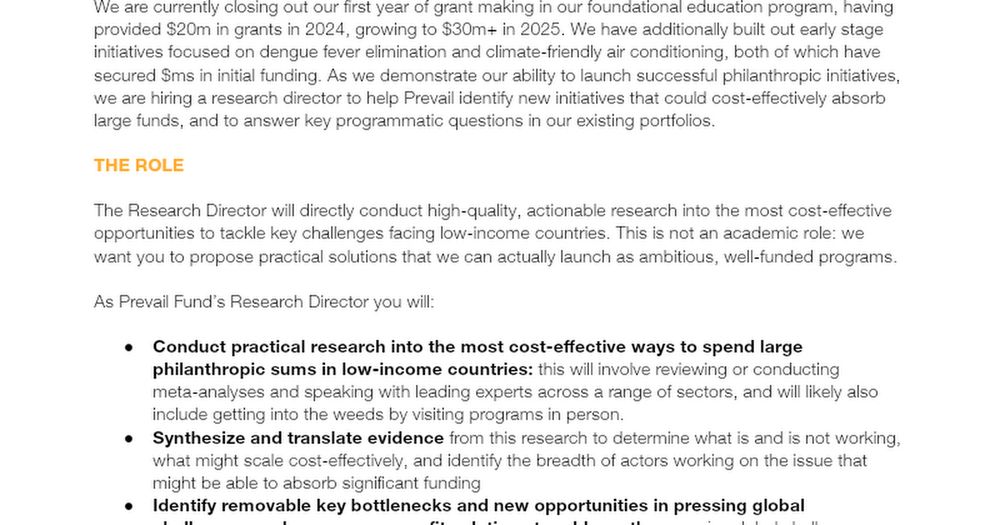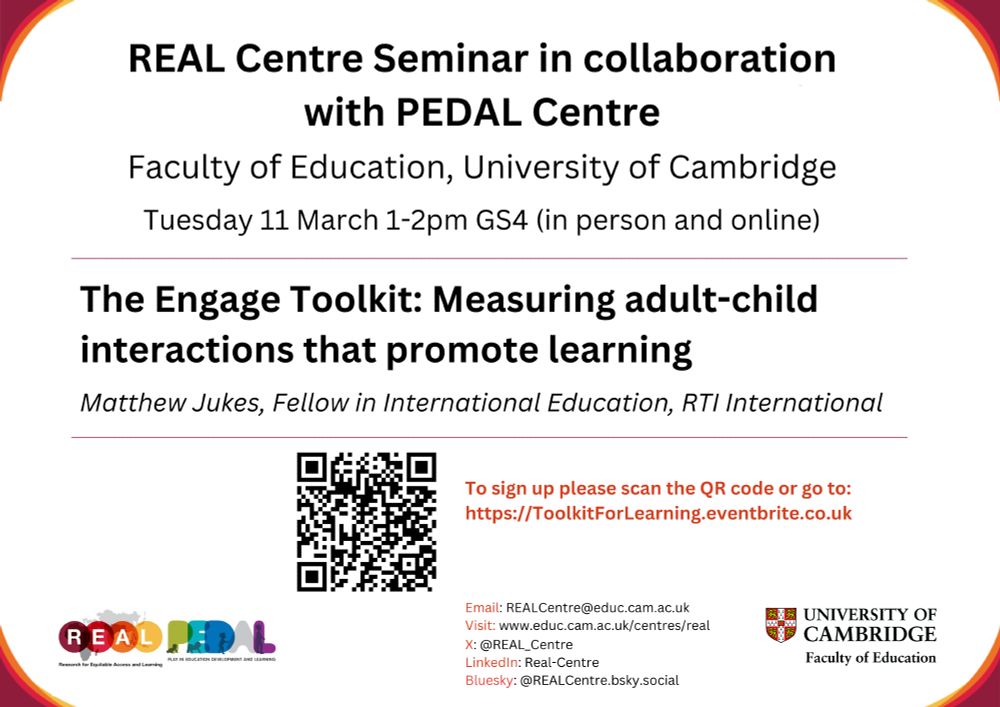
Tuesday 11 March 1-2pm GMT
The Engage Toolkit: Measuring adult-child interactions that promote learning
New toolkit measuring support children receive from teachers & caregivers
@matthewchjukes.bsky.social @rti.bsky.social with @pedalcam.bsky.social
Register: toolkitforlearning.eventbrite.co.uk
07.03.2025 15:46 — 👍 2 🔁 2 💬 0 📌 0
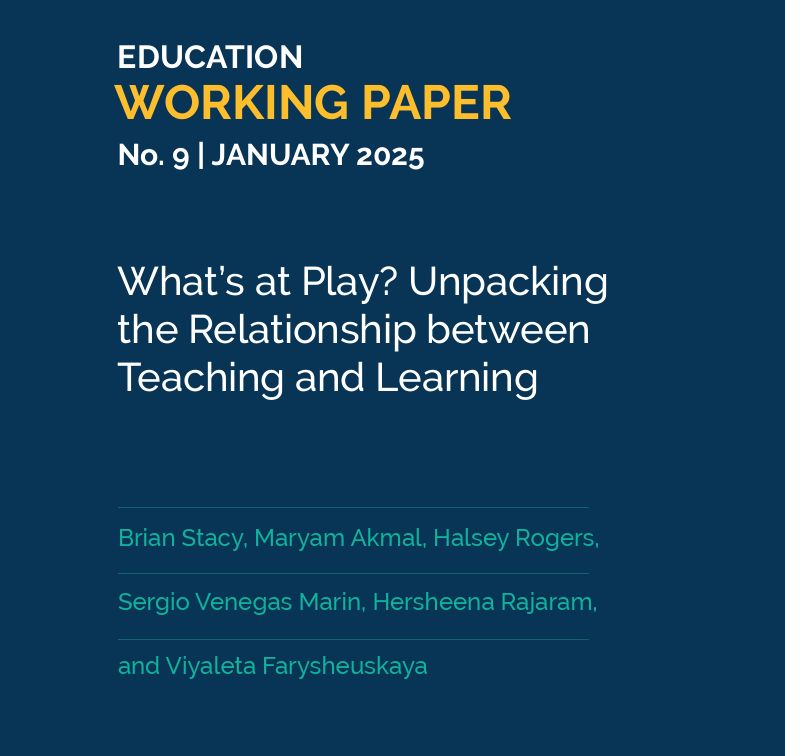
NEW PAPER: A World Bank study highlights the importance of engaging students in their learning and shows that the Engage observation tool is highly effective at predicting learning outcomes.
The study: bit.ly/4i58odd
My blog: bit.ly/4gqqchy
@WBG_Education
06.02.2025 16:53 — 👍 3 🔁 1 💬 0 📌 0
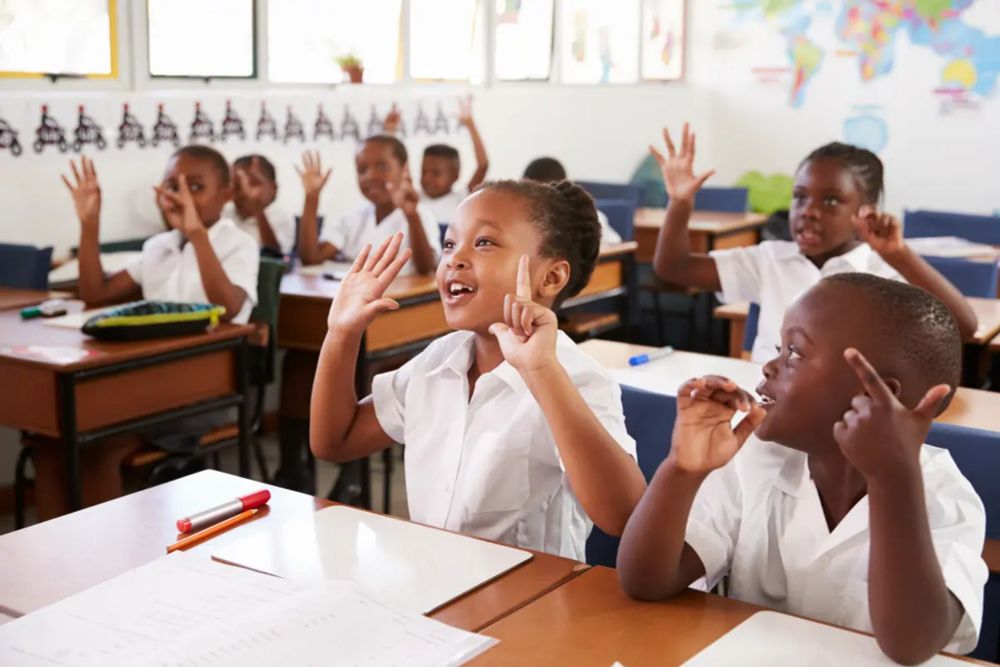
The Engage Toolkit
The Engage toolkit builds a better understanding of the components of great teaching and effective parental learning support that truly foster children’s engagement and underpin learning through play
We had 792 people from 82 countries join us last week in the global webinar sharing the first major findings of Engage, a toolkit which measures support for engagement of children in their learning. Find out more here: bit.ly/3HZO2Cb
@LEGOfoundation @NYUGlobalTIES
31.01.2025 15:28 — 👍 2 🔁 0 💬 0 📌 0
Hope you can join us for this session tomorrow to hear exciting new findings on our tool which has now changed its name from PLAY to Engage.
20.01.2025 13:45 — 👍 0 🔁 0 💬 0 📌 0
One week to go!
14.01.2025 15:12 — 👍 0 🔁 0 💬 0 📌 0
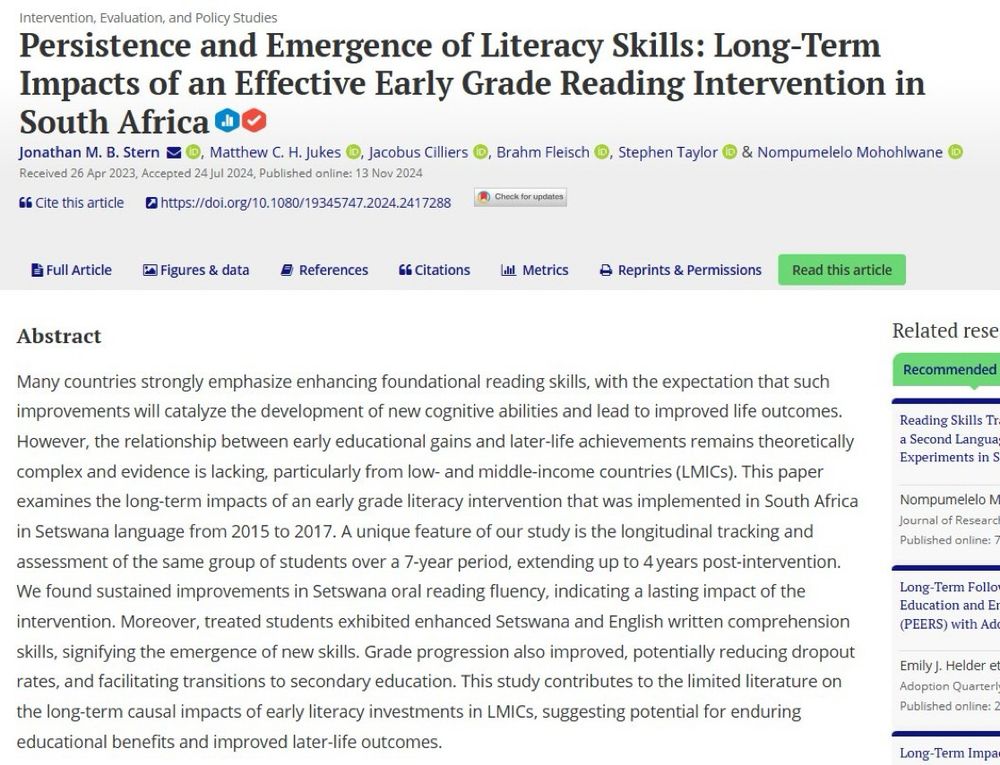
Two take-aways from our RCT follow-up on EGRS in South Africa: 1) Clear long-term (to Grade 7) effects of an early grade reading intervention. 2) Initial impacts in foundational skills (fluency) translate to longer-term impacts in higher-order skills (comprehension). #RTIFellow
bit.ly/4j6ygGR
13.01.2025 11:17 — 👍 9 🔁 5 💬 0 📌 2
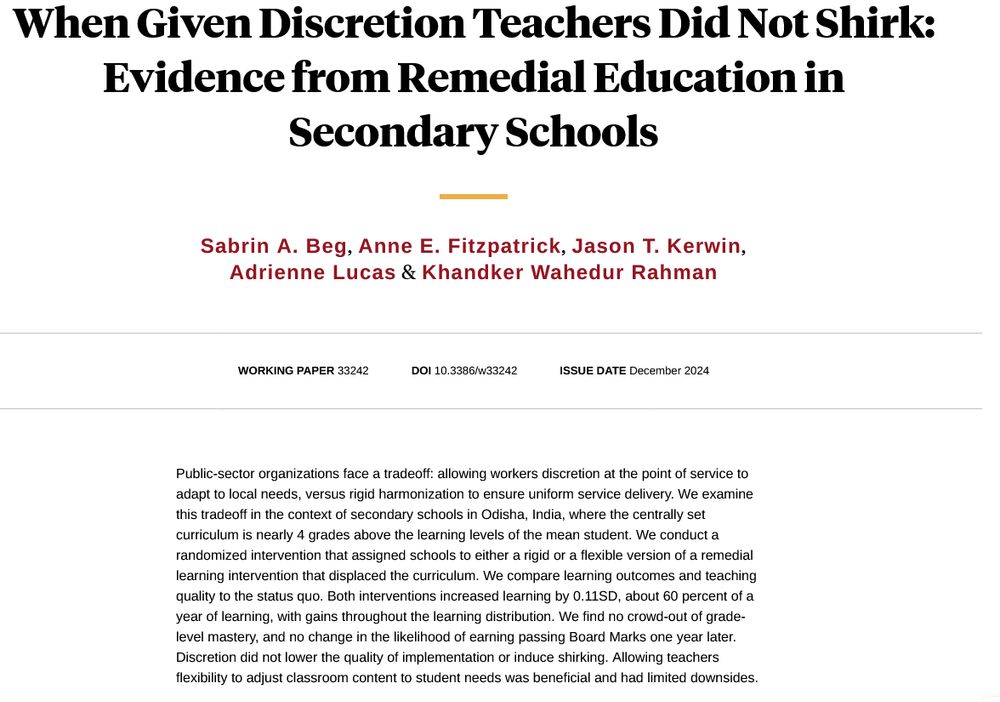
Screen shot of title page from NBER website.
When Given Discretion Teachers Did Not Shirk: Evidence from Remedial Education in Secondary Schools
Sabrin A. Beg, Anne E. Fitzpatrick, Jason T. Kerwin, Adrienne Lucas & Khandker Wahedur Rahman
Working Paper 33242
DOI 10.3386/w33242
Issue Date December 2024
Public-sector organizations face a tradeoff: allowing workers discretion at the point of service to adapt to local needs, versus rigid harmonization to ensure uniform service delivery. We examine this tradeoff in the context of secondary schools in Odisha, India, where the centrally set curriculum is nearly 4 grades above the learning levels of the mean student. We conduct a randomized intervention that assigned schools to either a rigid or a flexible version of a remedial learning intervention that displaced the curriculum. We compare learning outcomes and teaching quality to the status quo. Both interventions increased learning by 0.11SD, about 60 percent of a year of learning, with gains throughout the learning distribution. We find no crowd-out of grade-level mastery, and no change in the likelihood of earning passing Board Marks one year later. Discretion did not lower the quality of implementation or induce shirking. Allowing teachers flexibility to adjust classroom content to student needs was beneficial and had limited downsides.
New @nberpubs.bsky.social working paper: "When Given Discretion Teachers Did Not Shirk: Evidence from Remedial Education in Secondary Schools" with #SabrinBeg @annefitz13.bsky.social @jkerwin.bsky.social @kwrahman.com
Title summarizes it. We elaborate in the paper: www.nber.org/papers/w33242
17.12.2024 18:57 — 👍 27 🔁 7 💬 1 📌 0
@susannahhares.bsky.social @hiroyoshikawany.bsky.social
17.12.2024 15:42 — 👍 0 🔁 0 💬 0 📌 1
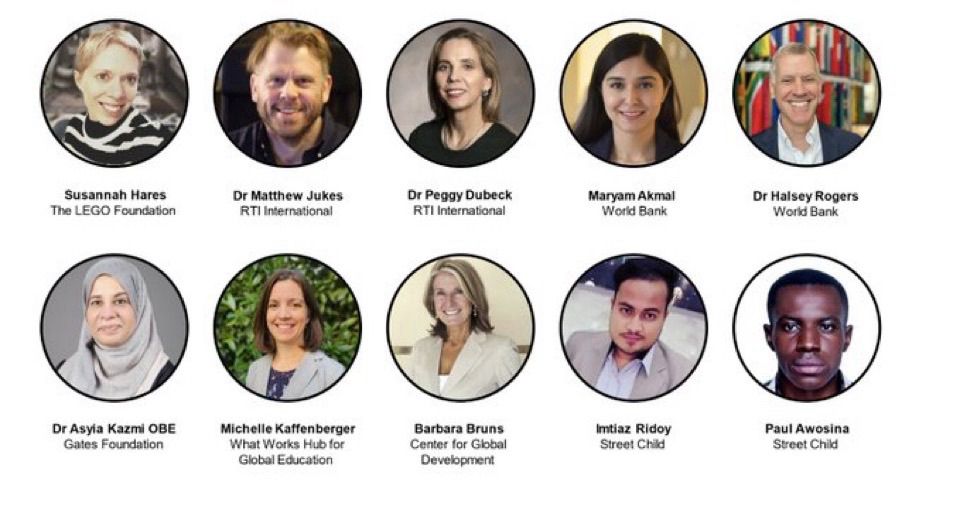
We have some exciting new findings and a phenomenal group of speakers for our PLAY webinar:
‘Introducing PLAY – Measuring Adult-Child Interactions that Boost Learning’
Tuesday 21 January 2025 at 2.00 – 3.30pm GMT | 9.00 – 10.30am EST
Register here: bit.ly/4flF5kG
17.12.2024 15:39 — 👍 2 🔁 0 💬 1 📌 3
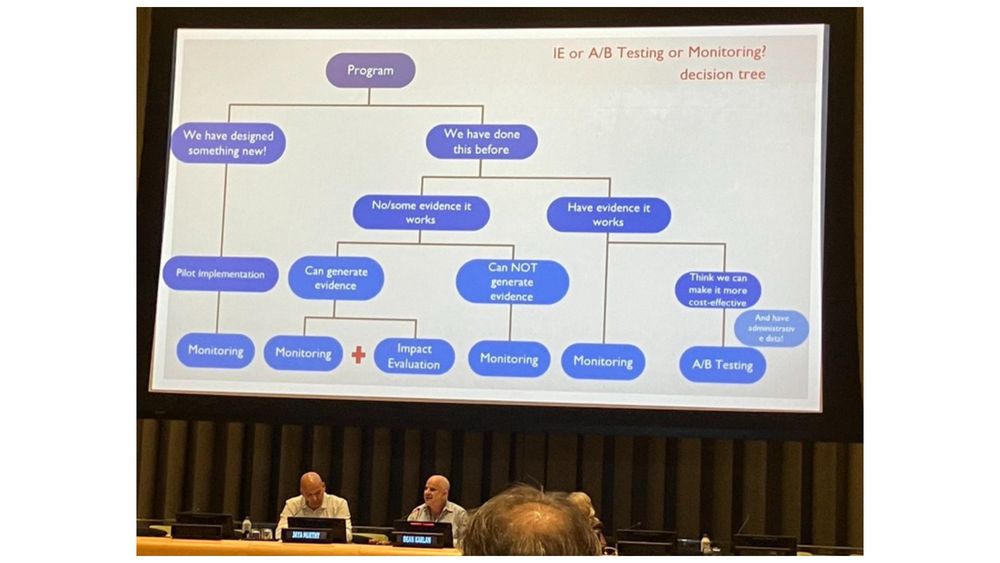
Dean Karlan of USAID highlights when to do an impact evaluation versus when to simply monitor versus when to do A/B testing.
03.12.2024 17:00 — 👍 40 🔁 12 💬 2 📌 1
Early bird closes 21 Sept | 27-29 October 2025 | Melbourne, Australia | #ImpSci | #EvidenceSynthesis | #EIS2025 | Global
Director of Research at Oxford MeasurEd.
Interested in all things education, research, policy and politics.
Assistant Professor of Psychology at UNL; Applied developmental psychologist; Passionate about self-regulation development and reducing inequality; PI of the Learning And Development Research (LADR) group
https://www.jenna-finch.com/
The Research for Equitable Access and Learning (REAL) Centre at the University of Cambridge pioneers research on social justice and equity in and through education through research and public engagement to inform policy and practice.
The Education and Development Forum (UKFIET) provides a forum for those working for education and development internationally to share ideas, knowledge and expertise.
Author, #BeUnapologeticallyImpatient; Associate Professor at the Yale Child Study Center, Director of the Education Collaboratory @ Yale, mom of 4, Advocate 4 all. View my own
Passionate about research that improves children's lives globally. Associate prof @ubeconomics. @ERC_Research grantee & @Foundation_JF fellow #ChildDevelopment
https://aurinoelisabetta.weebly.com
Networking to Integrate SDG Target 4.7 and Social & Emotional Learning in Educational Materials NISSEM.org
Research and Innovation at https://www.youth-impact.org/
Tweets are personal views. #fuckcancer She/her
I am an Economist leveraging the assignment mechanism in the field to test theory and help non-profits, govts, and anyone who will listen! My goal is to (hopefully!) change the world for the better. My picture is with my son who makes me so proud daily.
Head of Department and Chair in Education Policy at the University of Arkansas. Former World Bank Senior Adviser for Education
https://harryapatrinos.substack.com/
Co-founder, Youth Impact
Academic Director, What Works Hub for Global Education
Blavatnik School of Government, University of Oxford
Home of the "Best of #Econtwitter" (& #econsky) newsletter
https://www.bestofecontwitter.com/
Vice President & Senior Policy Fellow @ The Center for Global Development. @cgdev.bsky.social. Former US Treasury and World Bank. post = my views.
Economist working on international development, climate and trade
Co-Director, Europe programme at the Center for Global Development.
FT columnist, BBC journalist, author, host of Cautionary Tales, professional nerd.





